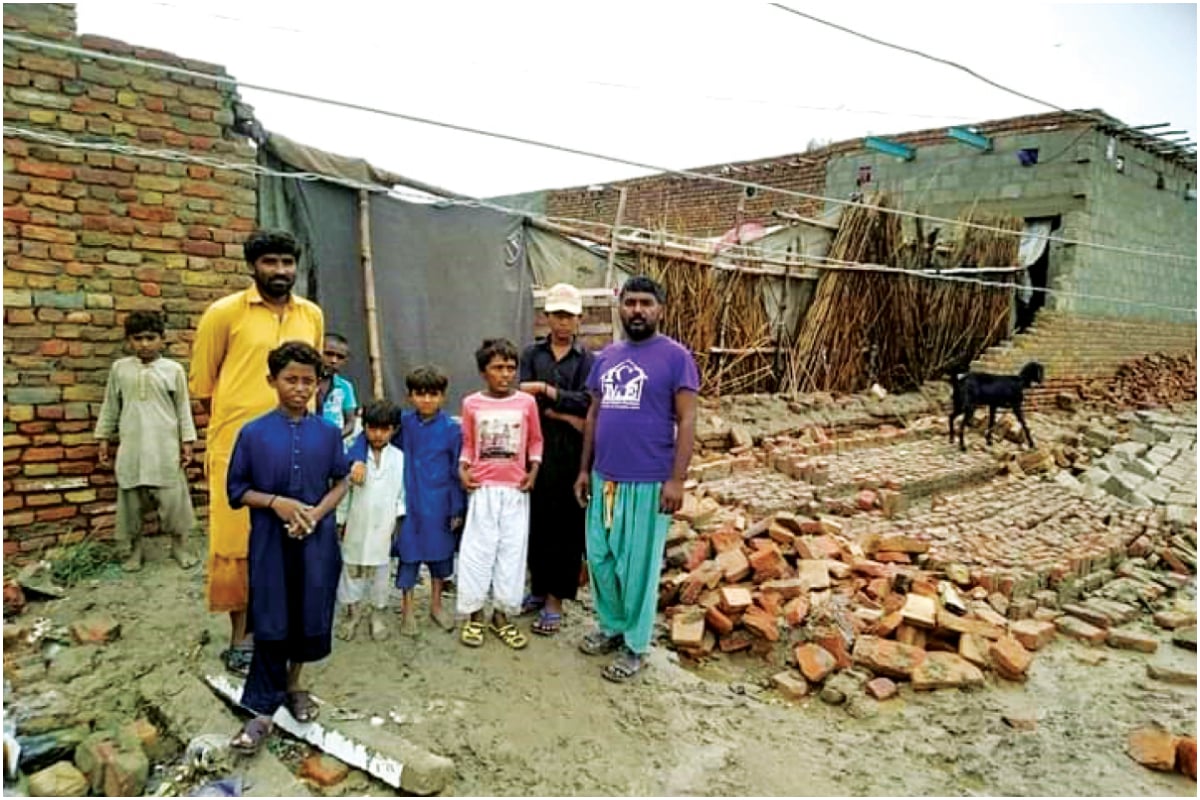
Left for dead
Corruption adversely affecting the destitute
Karachi: Decades of mismanagement, corruption in the country’s political and economic arena, have resulted in the suffering of the entire Pakistani society. Once, a rapidly developing country brimming with potential, be it natural resources, arts and architecture, capable workforce, intellectual minds, or jaw-dropping landscapes, it has now been reduced to one of the most difficult and corrupt places to live.
Though no country has been able to completely eliminate corruption, corruption in Pakistan is much higher than in developed countries. It erodes the very fabric of society, weakens democracy, hampers economic development, and further exacerbates inequality, poverty and social division.
Pakistan has made numerous attempts to achieve democracy since 1947, but after several martial laws, political assassinations, failing governments, prosecutions, and widespread corruption, the formula has yet to be perfected. Even though the country has had democratically elected governments since 2008, the longest period since its independence from the British Raj, one could argue that it possesses none of the characteristics of a republic.
Instead, Pakistan has devolved into a mix of nationalist politics based on quasi-religious sentiments, further dividing the country—a tactic passed down from the British—and widespread distrust of all state institutions.
It has become a nation in which every ethnic group harbours a deep hatred for the other, the only people who benefit from this hatred are those with vested political interests.
The ‘haves’ oppress the very people they are meant to serve and where the ultimate life goal of the youth is to obtain that power in order for them to be one of the oppressors, rather than the other way around. It is only natural in such a place for people who require immediate relief and rehabilitation from the state to be abandoned and shrugged off, to be used only to further their own political aspirations. These are the same people who have been victims of ruthless corrupt practises for years and have been on the frontlines of the most devastating natural disaster in recent memory.
Many people lost hope of ever rebuilding after losing their homes and all of their worldly possessions in last year’s flood disaster, but that hope was rekindled when the government announced rehabilitation assistance. However, five months later, a large number of flood-affected people are yet to receive any form of relief.
The majority of those affected by the flood, belonged to a low-income segment of society, working as daily wagers, unable to rebuild their homes, and forced to spend the winter outdoors with their families.
On January 9, the National Assembly Standing Committee on Poverty Alleviation grilled Benazir Income Support Programme (BISP) officials, arguing that a number of flood victims had yet to receive government assistance through their institution.
Saira Bano, the committee chairperson, told the BISP secretary that she had videos of many people complaining that flood relief had not reached them. She also summoned officials from the National Disaster Management Authority (NDMA) for an update on the situation.
The BISP secretary briefed the committee members on the distribution of aid and informed them that more than 2.8 million flood-affected families had received cash assistance.
However, there have been reports of flood victims being exploited by government officials tasked with helping them escape their dire predicaments. With numerous complaints that the agents illegally deducted financial assistance, several FIRs were also filed against them. Also, in many cases, agents gave less money to the affected families than the fixed amount.
Even though legal action was being taken against such agents, these deductions further exacerbated the already deplorable circumstances of countless bereaved families in the short term.
Bhai Khan, a resident and farmer from Bakhtiyarpur village in Sehwan tehsil, said of his ordeal, “I still haven’t gotten a penny five months after the provincial administration said it would provide flood victims Rs 400,000 to reconstruct their homes.”
“We are not considered human beings. When the disaster occurred, you would at the very least hear about it on the news. But now we have been forgotten and left for dead,” he lamented.
The poor farmer is not alone in his plight. He is one of many scattered throughout the region who have been left with nothing but the clothes on their backs, desperate for any form of respite.
The current infrastructure, which was already in shambles prior to the recent disaster, has also been devastated, and any efforts to mitigate the damage have been insufficient. If the authorities had planned for such disasters, the population of the country might be in a better position today. At the current rate of recovery, it could take years, and any recovery will almost certainly be interrupted by yet another disaster.
These are disconcerting circumstances that should elicit righteous indignation from the public. There is already anger among the masses, fueled by those in power’s contempt for the country’s current predicament.
This was evident when many lawmakers were refused entry to a number of villages directly affected by the disaster, as residents viewed these visits as nothing more than mere publicity stunts. This indignation felt by the people is justified, as one can derive a sense of morality from it, and it can be claimed as an ‘acceptable’ form of anger, even if it is actually used as rage.
While politicians continue to quarrel amongst themselves about the results of the recent local body elections, gloom and dread continue to occupy the lives of the destitute.
Catch all the Urban Insight News, Breaking News Event and Latest News Updates on The BOL News
Download The BOL News App to get the Daily News Update & Live News.












 Read the complete story text.
Read the complete story text. Listen to audio of the story.
Listen to audio of the story.